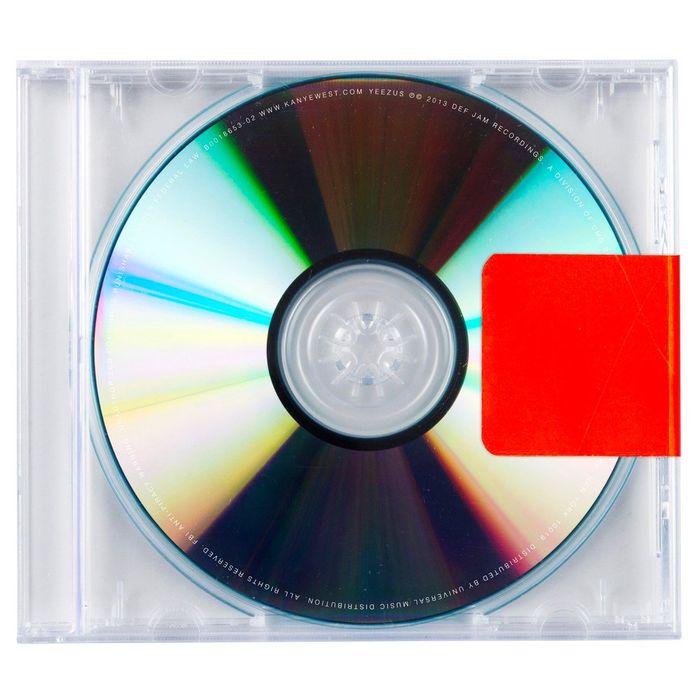Arcade Fire’s The Suburbs: A View from the Other Side
In the light of her own suburban adolescence, Bethan Holloway-Strong examines how the album is unexpectedly relevant today

Two months before my 13th birthday, I moved to my new home in The Woodlands, Texas. Coming from Western Australia, where the earth and sea beat wildly at my door, I felt trapped in the well-defined suburb. A planned community filled with shopping malls, cul-de-sacs, and plastic surgery clinics, The Woodlands felt artificial and cheap. Neighbourhoods were called “villages”, and each had a twee name: Sterling Ridge, Indian Springs, Panther Creek. Every house looked the same. My mother called it a film set.
A year later, sat at my desk with my geometry homework spread in front of me, I pressed play on the Apple Music-curated radio station for those who liked Coldplay. Vibrant piano and drums filled my ears, overlaid with a female voice with a foreign accent. I checked the song on my phone. ‘Sprawl II (Mountains Beyond Mountains)’, by Arcade Fire, from The Suburbs. I listened, enraptured, as Régine Chassagne mused, “sometimes I wonder if the world’s so small that we can never get away from the sprawl”.
This year, five years after moving back to my home country of England, I discovered that Win Butler and his brother William, two members of Arcade Fire, wrote The Suburbs about their experience growing up in the very same Houston suburb. The Butler brothers describe the album as “neither a love letter to, nor an indictment of, the suburbs – it’s a letter from the suburbs”. The 2010 Grammy Album of the Year takes the listener through the life of a suburban child; ‘The Suburbs’ and ‘Ready to Start’ are songs of frustrated adolescence, ‘Half Light I’ begins the disappointment in eventually growing up, moving into fear of the future in ‘Wasted Hours’ and ‘Deep Blue’. The three-track close of the album – ‘Sprawl I (Flatland)’, ‘Sprawl II (Mountains Beyond Mountains)’, and ‘The Suburbs (Continued)’ – is the subdued final realisation that, despite the constant feeling of wasting your adolescence in the suburbs, “if I could have it back, you know I would love to waste it again”.
I was thrilled by the discovery that I had listened to The Suburbs while living in the very suburbs that had inspired its title. Returned to my mother’s house by a pandemic and cast out of my newfound university independence, I am like Win Butler in ‘Half Light II (No Celebration)’: “when we watched the markets crash, the promises we made were torn, and my parents sent for me from out west, where I was born”. Although I’ve certainly not returned to The Woodlands, my peers and I have regressed to a kind of adolescence, trapped in childhood bedrooms. From all our complaints about Cambridge being a “bubble” (a term that, funnily, is also applied to The Woodlands), we’ve been forced into an even smaller realm. Cambridge is our very own “City with No Children”, “a garden left for ruin by a millionaire inside of a private prison”, but it is only once you leave that you realise how nice it was to “hide inside” that bubble.
“It is only once you leave that you realise how nice it was to “hide inside” that bubble.”
I sat in my room in my village in England (this time a real village rather than a manufactured one) and listened to the album from start to finish. I realised that despite being trapped in the very same suburbs as the Butler brothers at age 14, I was not the target audience of this album. How could I know what it would be like to “watch the life you’re living disappear” until I left The Woodlands at age 15, bound for my home country? How could I know what it would be like to take “a drive into the sprawl, through these towns they built to change” until I returned to Texas at age 18, putting my head once more into the jaws of the suburban beast? And how could I know what it would be like to long for the opportunity to “have it back, all the time we wasted” until I was being loaded with work during a global pandemic? In some ways, I’ve proved the message of the album itself; at 14, I was in a kind of “half light”, convinced that this album was the peak of relatability, but now, on the other side, I see how much I was missing out on.
Arcade Fire could have never predicted the current situation, but their album is somehow perfect for it. I may have run away from The Woodlands, from suburbia, but I can never escape it – and at least I’m not alone in that feeling. My ears fill once more with those piano chords, and, as if reading my thoughts, Chassagne begins to sing again: “sometimes I wonder if the world’s so small that we can never get away from the sprawl”.
 Comment / Plastic pubs: the problem with Cambridge alehouses 5 January 2026
Comment / Plastic pubs: the problem with Cambridge alehouses 5 January 2026 News / Uni-linked firms rank among Cambridgeshire’s largest7 January 2026
News / Uni-linked firms rank among Cambridgeshire’s largest7 January 2026 News / New movement ‘Cambridge is Chopped’ launched to fight against hate crime7 January 2026
News / New movement ‘Cambridge is Chopped’ launched to fight against hate crime7 January 2026 News / SU stops offering student discounts8 January 2026
News / SU stops offering student discounts8 January 2026 News / Cambridge businesses concerned infrastructure delays will hurt growth5 January 2026
News / Cambridge businesses concerned infrastructure delays will hurt growth5 January 2026









